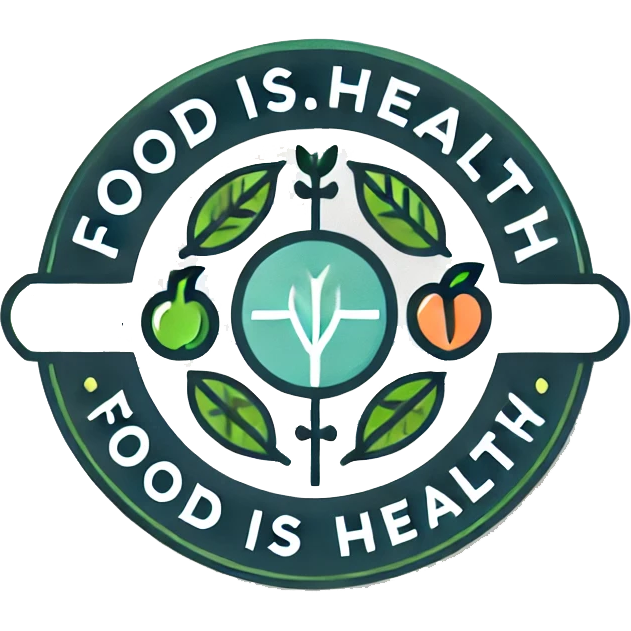Chronic inflammation can be a significant health concern, leading to various health issues like heart disease, arthritis, and even certain cancers. An anti-inflammatory diet is one of the best ways to manage and reduce inflammation naturally. This diet focuses on consuming foods that have been shown to lower inflammation in the body while avoiding foods that can cause it. In this article, we’ll help you create a weekly meal plan that includes specific anti-inflammatory foods to focus on, making it easier to manage your condition while enjoying delicious meals.

What is an Anti-Inflammatory Diet?
An anti-inflammatory diet isn’t just a single type of meal plan but rather a way of eating that emphasizes foods known to reduce inflammation. These foods are typically rich in antioxidants, omega-3 fatty acids, and fiber, which help combat oxidative stress, inflammation, and other factors contributing to chronic inflammation.
Foods to Focus On
When following an anti-inflammatory diet, it’s essential to include a variety of nutrient-dense foods that have been shown to lower inflammation. Here’s a list of some key foods to focus on:
- Fruits and Vegetables: These are rich in antioxidants and vitamins that help reduce inflammation. Focus on colorful fruits like berries (blueberries, strawberries), cherries, and oranges, and vegetables like leafy greens (spinach, kale), broccoli, and bell peppers.
- Whole Grains: Whole grains like oats, brown rice, quinoa, and whole-wheat bread are excellent sources of fiber, which can help reduce inflammation. They are much better choices than refined grains like white bread or pasta.
- Fatty Fish: Salmon, mackerel, sardines, and other fatty fish are high in omega-3 fatty acids, which are known to reduce inflammation. Aim to include fatty fish in your diet at least twice a week.
- Nuts and Seeds: Almonds, walnuts, flaxseeds, and chia seeds are good sources of healthy fats, protein, and fiber. They also contain anti-inflammatory compounds.
- Olive Oil: Extra virgin olive oil is packed with monounsaturated fats and antioxidants, making it a staple in an anti-inflammatory diet. Use it as your primary cooking oil.
- Spices: Turmeric, ginger, and cinnamon are spices known for their anti-inflammatory properties. Incorporate these into your meals for added flavor and health benefits.
- Tea: Green tea is rich in antioxidants called catechins, which have anti-inflammatory effects. Drinking green tea regularly can help reduce inflammation.
Foods to Avoid
Just as important as knowing what to eat is knowing what to avoid. Certain foods can exacerbate inflammation and should be limited or avoided in your diet:
- Processed Foods: Fast food, chips, and other processed snacks are often high in trans fats and sugars, which can increase inflammation.
- Sugary Drinks: Sodas, energy drinks, and sweetened teas can spike blood sugar levels, leading to increased inflammation.
- Refined Carbohydrates: White bread, pastries, and other refined grains can cause inflammation due to their high glycemic index.
- Red Meat: High consumption of red meat, especially processed meats like bacon and sausages, has been linked to increased inflammation.
Sample Weekly Meal Plan
Here’s a simple and delicious weekly meal plan to help you start your anti-inflammatory diet. Feel free to adjust portion sizes based on your needs.
Day 1:
- Breakfast: Oatmeal topped with blueberries, walnuts, and a drizzle of honey.
- Lunch: Quinoa salad with mixed greens, cherry tomatoes, cucumber, and olive oil dressing.
- Dinner: Baked salmon with steamed broccoli and a side of brown rice.
Day 2:
- Breakfast: Smoothie with spinach, banana, chia seeds, and almond milk.
- Lunch: Whole-wheat wrap with grilled chicken, avocado, and spinach.
- Dinner: Stir-fried tofu with bell peppers, onions, and turmeric over quinoa.
Day 3:
- Breakfast: Greek yogurt with strawberries, flaxseeds, and a sprinkle of cinnamon.
- Lunch: Lentil soup with a side of whole-grain bread.
- Dinner: Grilled mackerel with roasted sweet potatoes and green beans.
Day 4:
- Breakfast: Scrambled eggs with spinach and whole-wheat toast.
- Lunch: Mixed bean salad with olive oil and lemon dressing.
- Dinner: Baked chicken with turmeric, served with a side of sautéed kale and brown rice.
Day 5:
- Breakfast: Smoothie bowl with mixed berries, almonds, and chia seeds.
- Lunch: Hummus and vegetable sandwich on whole-grain bread.
- Dinner: Grilled shrimp with zucchini noodles and a side of roasted cherry tomatoes.
Day 6:
- Breakfast: Whole-grain pancakes topped with fresh berries and a dollop of Greek yogurt.
- Lunch: Spinach salad with walnuts, apple slices, and olive oil dressing.
- Dinner: Baked cod with roasted Brussels sprouts and quinoa.
Day 7:
- Breakfast: Avocado toast on whole-wheat bread with a side of mixed berries.
- Lunch: Chickpea and vegetable stir-fry with brown rice.
- Dinner: Grilled turkey breast with roasted carrots and a spinach salad.
Conclusion
An anti-inflammatory diet can be a powerful tool in managing chronic inflammation and improving your overall health. By focusing on whole, nutrient-dense foods and avoiding those that can trigger inflammation, you can create a meal plan that not only reduces inflammation but also provides you with the energy and nutrients needed for a healthy lifestyle. Remember, it’s always a good idea to consult with a healthcare professional before making any significant changes to your diet, especially if you have existing health conditions.
By following this weekly meal plan, you’ll be well on your way to reducing inflammation and feeling your best.
Make sure to check out more articles in our News & Views section. Feel free to reach out any time to collaborate with Food Is Health on projects which help people heal through natural food & nutrition.
Organic vs Conventional Food | Food Preservatives & Additives | Anti-Inflammatory Diets | Gut Health & Probiotics | Plant-Based Diets | Detox Diets & Cleanses | Food Allergies & Sensitivities Functional Foods | Sustainable Eating & Food Waste | Ag Related Topics | Popular Topics
